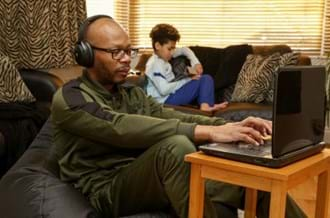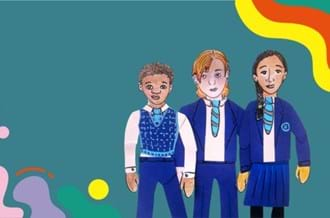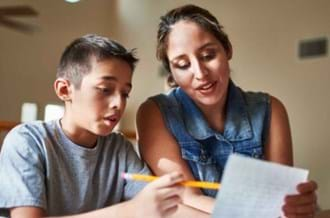Supporting your child's mental health
Supporting your child's mental health
As parents and carers, we play an important role in teaching children and young people how to understand and manage their feelings as they grow up.
I'm worried about my child
If their life is in immediate danger, call 999. If not, follow our advice for getting urgent help.
What can I do at home?
- Find time to talk, just the two of you – 'Check in' with them while you're doing things together, so they get used to talking about their feelings.
- Play together – Play helps them to be curious, learn new things, solve problems and express feelings without words.
- Be a role model – Show how you cope with difficult feelings and look after yourself.
Where can I get more information?
Child mental health and wellbeing
Big changes
- Bereavement and grief - Child Bereavement UK or Winston's Wish.
- Divorce and separation - Young Minds.
- Getting ready to start school - Place2Be.
- Adolescence and growing up - The Mix.
- Exam stress - Place2Be.
Conditions and challenges
- Eating disorders - Beat.
- Addiction and drugs - FRANK.
- Abuse - NSPCC (National Society for the Prevention of Cruelty to Children).
Difference and diversity
- Special needs and disabilities - Scope.
- Autism - National Autistic Society.
- LGBTQ+ - Strong Family Alliance.
- Race and ethnicity - BAATN (The Black, African and Asian Therapy Network).
- Gender identity - Gendered Intelligence.
Please note this is not an exhaustive list, and we are unable to signpost to every organisation. Please refer to the NHS or BBC Action Line for a more comprehensive directory.
Does my child or young person need mental health support?
It's normal to feel angry, sad, worried or stressed sometimes.
However, your child might need extra support if they struggle to cope with those feelings.
Look out for:
- sudden changes in behaviour
- negative thoughts and low self-esteem
- arguing and fighting
- sleep problems
- avoiding school or staying with you all the time
- aches and pains.
Remember – everyone is different, and these signs might not be related to a mental health problem.
Children and young people can be affected by significant changes like:
- death or illness in the family
- parents separating
- moving school or moving house
- tests and exams
- adolescence and puberty
- relationship and friendship problems.
Try talking to them first. If you're worried, follow our advice on how to get help.
News & blogs

Place2Be online parenting course now available to organisations
Place2Be's online parenting course helps working parents and carers feel better equipped to manage their parenting journey.
Read more
Three charities launch wellbeing video for young carers
Three charities have joined forces to launch a new video aimed at fostering the wellbeing and creativity of young carers.
Read more
Why self-awareness is as important in parenting as it is for children
We share examples of how self-awareness can help you grow as a parent and get the best out of you and your child.
Read more



